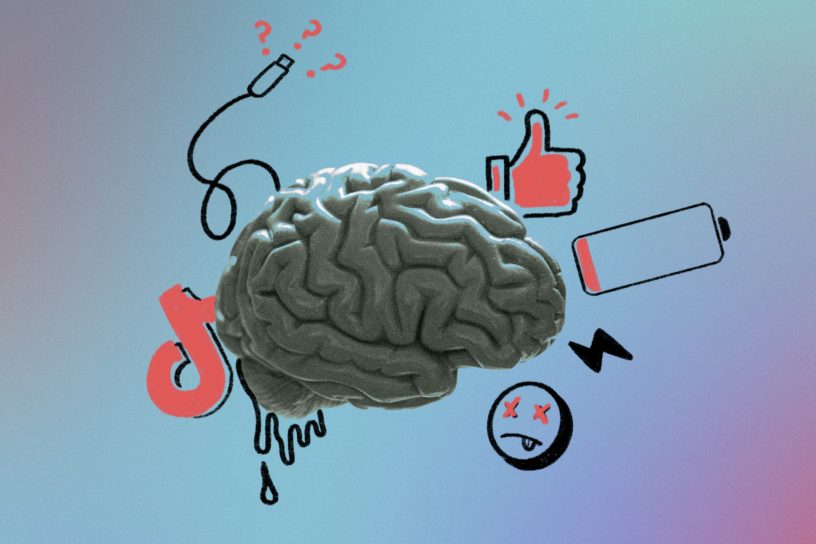By Dylan Marks
With 91 per cent of students using social media across the country according to Statistics Canada, a large majority of university students are seeing a decline in their ability to focus and produce high-quality work in an academic setting.
“Social media on its own is meant to get you to keep moving from thing to thing, which is the opposite of when you’re trying to learn something,” said Robert Clapperton, an associate professor in the School of Professional Communications at Toronto Metropolitan University (TMU).
Clapperton mentioned how the content on these platforms is designed specifically to keep you scrolling through the endless stream of short-form content. “The whole idea is to try and get you into the post just long enough that you want to get to the next one,” he said.
According to the National Library of Medicine, when used for non-academic purposes, social networking applications can have a negative effect on students’ focus levels, academic performance, social interactions and sleep patterns.
Heidi Sera, a first-year English student at TMU, said social media has impacted the way she learns.
“My focus and attention has gone down when it comes to any time I’m trying to do my readings for school,” she said.
Even the presence of a mobile phone with access to social media can reduce “cognitive capacity” in students who are trying to pay attention, according to an article by the University of Chicago. Just having a phone in a pocket or on a desk significantly impacts the amount and quality of work students can do.
“The whole idea is to try and get you into the post just long enough that you want to get to the next one”
Similar to Sera, first-year TMU fashion student Janice Otieno said there are times in class when she struggles to maintain focus. When distracted, she looks for an escape on her phone.
“I feel sometimes my attention span is a bit shorter when I’m sitting in class, then I zone out and I just like, need something to entertain me for a second,” she said.
Otieno said even short breaks in class aren’t enough to help her regain focus as she still feels the urge to have a scroll.
According to the National Library of Health, students who use social media might be more tempted to repeatedly check messages and app notifications while trying to pay attention.
Sera said social media notifications catch her attention when she studies as they chip away at the back of her mind. “When my phone pops up, or an Instagram notification, I’m like, wait, I kind of want to check it. Who DM’d me? Who liked my post?” she said.
Karim Bardeesy, executive director of The Dais and expert in social media at TMU, said one of the key factors making social media so addictive lies within the algorithms that power the platforms.
“The ‘For You’ algorithm [on Tik Tok], particularly, there’s lots of evidence that has a special hold on people,” he said.
These algorithms are what drive students like Sera and Otieno to look at their phones for short-term relief from deep-thinking academic environments.
Bardeesy further noted that apps like Instagram and TikTok in particular are more addictive than other social media apps.
“We’re losing our ability to pay deep focus, to do deep reading, that sort of thing”
“If you look at the engagement times on Instagram reels or TikTok compared to other recent social media platforms, they’re higher. So people tend to stay on those sites longer,” he said.
These higher levels of engagement are primarily due to the short attention-pulling content posted on the apps. While conducting a study on TikTok videos, Clapperton concluded that the ideal length for a video to draw viewers in and keep them interested was around 10 to 12 seconds. After this time, the average viewer gets uninterested and moves onto the next thing, he said.
“We’re losing our ability to pay deep focus, to do deep reading, that sort of thing,” said Clapperton.
Along with deep focus and reading skills, Bardeesy also believes social media is correlated to shifts in students’ writing and social skills.
However, not all hope is lost. Just as students can lose the ability to lose focus, they can relearn it as well. According to The George Washington University School of Business, there are a “number of resources and solutions available to those whose attention spans aren’t what they could or should be.” These include reducing distractions by focusing on single tasks, maintaining a planner or work calendar and limiting social media usage and discussions.
Regular physical activity can help boost attention span, and periods of focused rest can also aid in getting back into the right mindset for work.












Leave a Reply